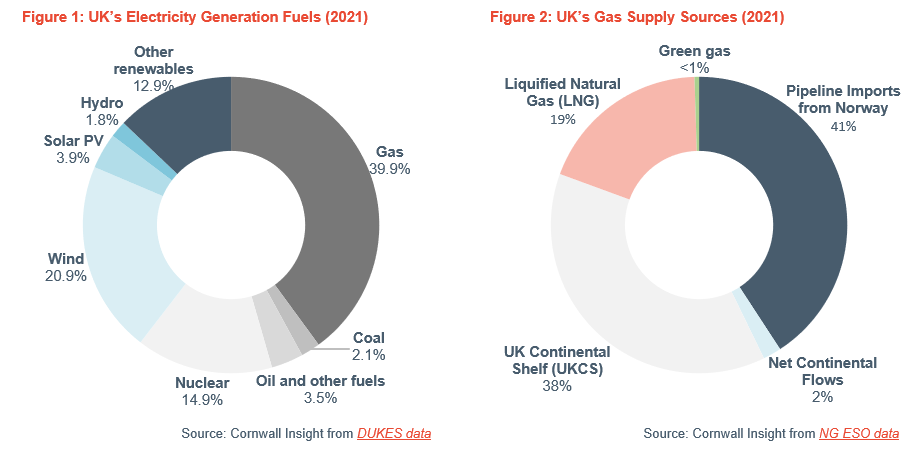
An independent research paper from Cornwall Insight, commissioned by Smart Energy GB, has set out the part smart meters could play in getting a grip on the energy crisis in Great Britain (GB). The paper – ‘Energy security and Smart Meters’– outlines how through empowering consumers to change how much energy they use and when they use it, smart meters could facilitate additional renewable generation and reduce GB reliance on imported energy, saving consumers money.
Households directly consume around a third of all gas and electricity used each year. They contribute to the daily peaks in electricity demand, which occur on weekdays, usually between 4pm and 7pm when there is a greater crossover between industrial, commercial and household usage. Times of peak demand are often linked to an increase in fossil fuel generated electricity, which can be more expensive than other fuels and increases the cost of wholesale electricity at peak times.
By providing near real-time information through a visual in-home display, consumers are able to see how much energy they are using and can change habits accordingly, reducing or shifting energy consumption away from peak periods and lowering overall consumption. Using the half hourly data from smart meters, customers can be rewarded for reducing their use of electricity and gas at certain times, in a way that would not be possible with a traditional meter. Real-time electricity consumption management can also support National Grid Electricity System Operator in managing supply and demand.
While just under 40% of electricity generated in GB comes from renewable sources, around 40% is generated using gas. More than half of the gas used in Britain is imported. By reducing the amount of electricity and gas consumed (where possible), consumers can support energy security by reducing the need to operate some of the country’s most carbon-intense generating stations. Lower demand for gas will reduce our reliance on imported gas for our heating, and for the gas used to generate electricity.
Anna Moss, Senior Consultant at Cornwall Insight:
“Smart meters have the potential to play a critical role in energy security, empowering consumers to change how much energy they use and when they use it. If consumers reduce or shift their energy consumption away from peak periods, they may be able to save money, facilitate additional renewable generation and reduce reliance on imported energy.
"Smart meters enable households to participate in schemes such as National Grid Energy System Operator’s Demand Flexibility Service, which allows the system operator to manage energy security during winter when demand is high by rewarding households and businesses for voluntarily flexing the time they use electricity at.“
Fflur Lawton, Head of Policy and Public Affairs, at Smart Energy GB:
“This report explains the key role played by smart meters in supporting Great Britain’s energy security. Our exposure to volatile global gas prices underscores the importance of making the most of cleaner, greener, homegrown energy. It also highlights the importance of being more flexible in the way that we use energy, to reduce waste in the system and flatten peaks in demand.
“Smart meters make this possible, by providing near-real time information that helps create a more responsive and efficient energy system. Over half of Great Britain’s homes and small businesses now have a smart meter, which put people in greater control of their energy use. This can help people to not only save money on their bills, but also help the country to reduce its dependence on fossil fuels and imported gas.”